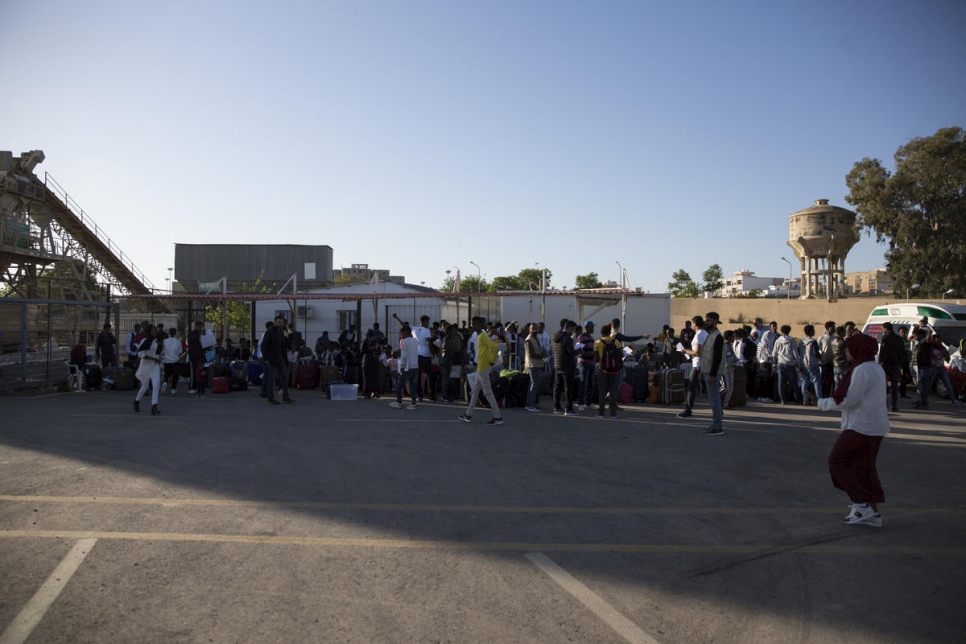Joint Statement: Government of Rwanda, UNHCR and African Union agree to evacuate refugees out of Libya

Refugees from Somalia, Syria and Eritrea board a bus at UNHCR's Gathering and Departure Facility in Tripoli, April 2019. © UNHCR/Mohamed Alalem
The Government of Rwanda, UNHCR, the UN Refugee Agency, and the African Union have today signed a Memorandum of Understanding to set up a transit mechanism for evacuating refugees out of Libya.
Under the agreement, the Government of Rwanda will receive and provide protection to refugees and asylum-seekers who are currently being held in detention centres in Libya. They will be transferred to safety in Rwanda on a voluntary basis.
A first group of 500 people, predominantly from the Horn of Africa, will be evacuated, including children and youth at risk. After their arrival, UNHCR will continue to pursue solutions for the evacuees.
While some may benefit from resettlement to third countries, others will be helped to return to countries where asylum had previously been granted, or to return to their home countries if it is safe to do so. Some may be given permission to remain in Rwanda subject to agreement by the competent authorities.
Evacuation flights are expected to begin in the coming weeks, and will be carried out in co-operation with Rwandan and Libyan authorities. The African Union will provide assistance with evacuations, strategic political support with training and coordination, and help to mobilise resources. UNHCR will provide protection services and necessary humanitarian assistance including food, water, accommodation, education and healthcare.
UNHCR urges the international community to contribute resources for the implementation of the agreement.
UNHCR has evacuated more than 4,400 refugees and asylum-seekers out of Libya to other countries since 2017, including 2,900 through the Emergency Transit Mechanism in Niger and 425 to European countries through the Emergency Transit Centre in Romania.
However, some 4,700 people are currently estimated to be held in dire conditions inside detention centres in Libya. They urgently need to be moved to safety and to be provided with protection, lifesaving assistance, and durable solutions.
For further information, please contact:
GOVERNMENT OF RWANDA:
- Claude Kabengera. +250 78 889 4825, [email protected]
UNHCR:
- In Kigali, Elise Villechalane, +250 78 831 5198, [email protected]
- In Tripoli, Paula Barrachina, +218 91 001 7553, [email protected]
- In Tunis, Tarik Argaz, +216 29 9612 95, [email protected]
- In Brussels, Maeve Patterson, +32 470 99 54 35, [email protected]
- In Geneva, Babar Baloch, +41 79 513 9549, [email protected]
AFRICAN UNION:
- Olabisi Dare, +251 913013199, [email protected]
- Beatram Okalany, +251 915555654, [email protected]
- Directorate of Information & Communication, African Union Commission, [email protected]
